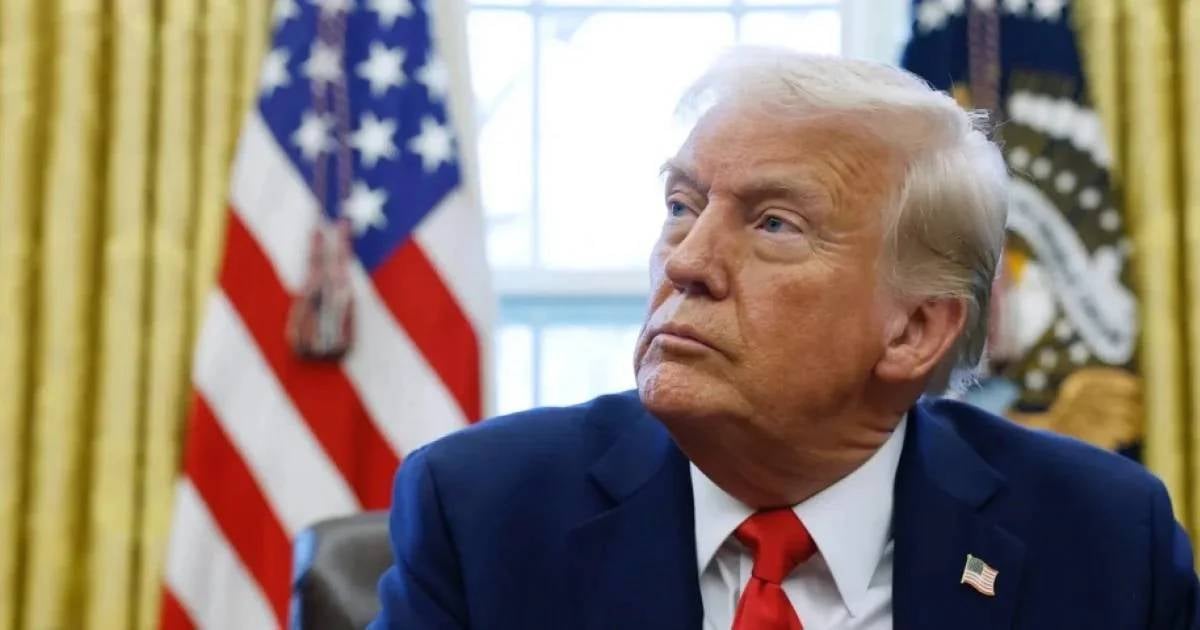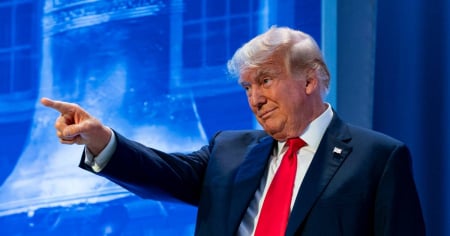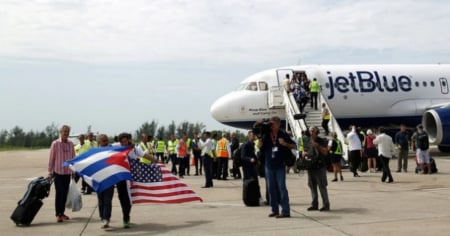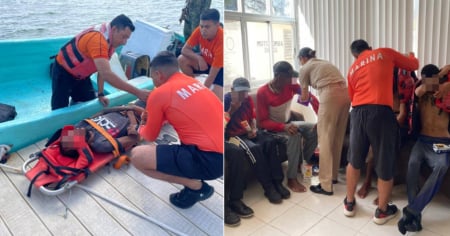
Related videos:
The Council for Democratic Transition in Cuba (CTDC) warned on Monday about the serious consequences that the revocation of humanitarian parole in the United States will have, a measure announced by the administration of Donald Trump, which could affect more than 150,000 Cubans.
"The new immigration policy of the Donald Trump administration may create a storm of pressures surrounding Cuban emigrants like never before," warned the CTDC in a statement.

The organization reported the risk that thousands of Cubans could find themselves trapped in an "uncertain legal limbo," unable to regularize their immigration status or return to the island.
The humanitarian parole, promoted by Joe Biden between 2022 and 2023 for citizens of Cuba, Venezuela, Nicaragua, and Haiti, allowed the temporary entry of immigrants into the U.S. for humanitarian reasons.
Since then, more than 530,000 people, including 110,000 Cubans, have benefited from the program. However, Executive Order 14165, signed by Trump on January 20, 2025, mandates its cancellation.
Last Friday, the Department of Homeland Security (DHS) confirmed that all active permits will expire in April.
"The suspension of parole and the invitation to self-deport are truly alarming for the entire region; in particular, for Cuban society," the statement notes, which also warns about the thousands of migrants who could be returned to a Cuba mired in economic and energy crisis.
"It does not seem that the Cuban government will accept such a reverse immigration, nor do the current conditions allow for a sudden reintegration of thousands of Cubans," warns the CTDC.
The Council urged the Cuban-American community and its elected representatives to take action to prevent families from being torn apart and to ensure that the migration crisis does not end in detention camps or forced deportations.
The organization recalled that there are still over 35,000 Cubans with pending deportation orders from before Biden's program, and warned that the number could exceed 150,000 following the cancellation of parole.
Trump justified the decision by stating that the humanitarian parole did not succeed in curbing irregular migration and overburdened public resources and the immigration system. The DHS has already begun to cancel travel permits, confirmed support, and employment authorizations derived from the program.
"Our concern regarding the dilemma of Cuban migration from the United States to Cuba is based on recent history," emphasized the CTDC, which urged the Cuban regime to welcome its nationals and cooperate on this issue, while warning that it would condemn any attempt to use the suffering of the deported for political propaganda.
The organization concludes its statement with a call for shared responsibility among governments and the international community: "Neither Venezuelans, nor Nicaraguans, nor Haitians, nor Cubans should be stigmatized for their social, economic, or political circumstances. They deserve support, assistance, and respect."
Frequently Asked Questions about the Revocation of Humanitarian Parole for Cubans and Other Migrants
What is the humanitarian parole that is being revoked by the Trump administration?
The humanitarian parole was a program created by the Joe Biden administration that allowed the temporary entry of migrants from Cuba, Venezuela, Nicaragua, and Haiti to the United States for humanitarian reasons. With Donald Trump’s executive order, this program is being revoked, affecting more than 530,000 individuals who entered the country under this status between 2022 and 2025.
What are the implications of the revocation of humanitarian parole for Cubans?
The revocation of humanitarian parole leaves thousands of Cubans in an "uncertain legal limbo", unable to regularize their immigration status in the United States or return to Cuba. It is estimated that more than 110,000 Cubans entered under this program, and many could face deportation if they do not find another legal basis to remain in the country.
What alternatives do Cubans affected by the cancellation of humanitarian parole have?
Affected Cubans can explore alternatives such as applying for permanent residency under the Cuban Adjustment Act, which allows them to obtain residency after one year and one day in the country. They can also look for other options such as political asylum or a work visa, although these alternatives may encounter legal and bureaucratic hurdles.
What does the Cuban government say about the possible deportation of its citizens?
The Council for Democratic Transition in Cuba (CTDC) has stated that the Cuban government is not prepared to accept a massive return migration. The organization has urged the Cuban regime to cooperate on this matter, although it also warned that it will condemn any attempt to politically exploit the suffering of the deported.
Why did the Trump administration decide to revoke humanitarian parole?
The Trump administration argues that humanitarian parole failed to curb irregular migration or improve border security. Additionally, it claims that the program overloaded public resources and the U.S. immigration system. Trump's executive order aims to secure the border and terminate categorical parole programs.
Filed under:





